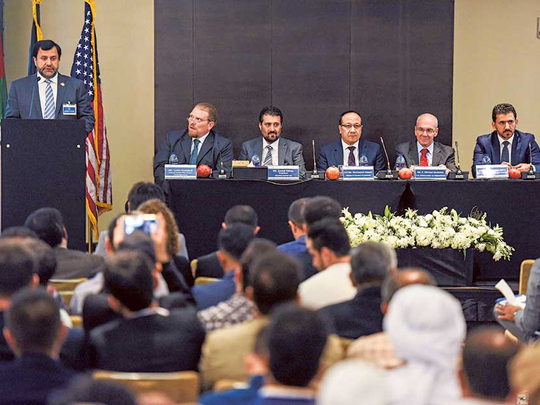
Dubai: Senior business and government officials from Afghanistan are optimistic about prospects of their country’s exports as they seek to boost shipments to larger markets in the region, such as the UAE and India.
Exhibition Afghanistan, a five-day event aimed at promoting Afghan products and connecting buyers to sellers, kicked off yesterday in Dubai with this outlook in mind. It is the first event of its kind for the country, and will feature a business-to-business matchmaking event lasting two days, in addition to an exhibition of around 70 of Afghanistan’s top companies that is open to the public.
The aim of Exhibition Afghanistan, organised by the US Agency for International Development (USAID), is to drive exports, whilst showing that Afghanistan is open for business.
“We’ve spent a long time working on different aspects of the economy in Afghanistan,” said Loren Stoddard, Director of Economic Growth for USAID Afghanistan. “It’s difficult to get traction. We’ve spent a lot of time and money on things which have not worked”.
“What we’ve realised, however, is that Afghanistan has lots of lovely things. The markets exist. People want Afghan gemstones, marble, fruits and nuts and things like that,” Stoddard says. He went on to explain that the difficulty is in getting those goods to people.
Afghanistan’s imports stood at $7 billion (Dh25.69 billion) in 2015, while exports stood at $500 million, caused by lack of production and a huge demand for supplies due to the reconstruction efforts. Afghanistan has traditionally followed a model of import substitution that proved unsuccessful. The logic was that by helping people make their own construction materials, for example, it would offset some of the trade imbalance.
The current government, led by President Ashraf Ghani, has decided to refocus Afghanistan’s economy towards production and export of traditional goods.
Another difficulty businesses face is in restoring confidence in the country. “Every aspect of the economy had been devastated before 2001, institutions destroyed and capacity disappeared”, said US Ambassador to Afghanistan, P. Michael McKinley. “Over the past 15 years, we’ve seen a 6 to 7 fold increase in per capita income, compared to where we were in 2002. There’s been a complete transformation of indices for mortality, health care, education”.
This task of improving the economy is not made easier, as the ambassador points out, by the fact that Afghanistan remains a war zone. “This is painstaking work”, said McKinley, “and let’s not sugar-coat this, in the context of a country in conflict, it’s difficult to attract investors”.












